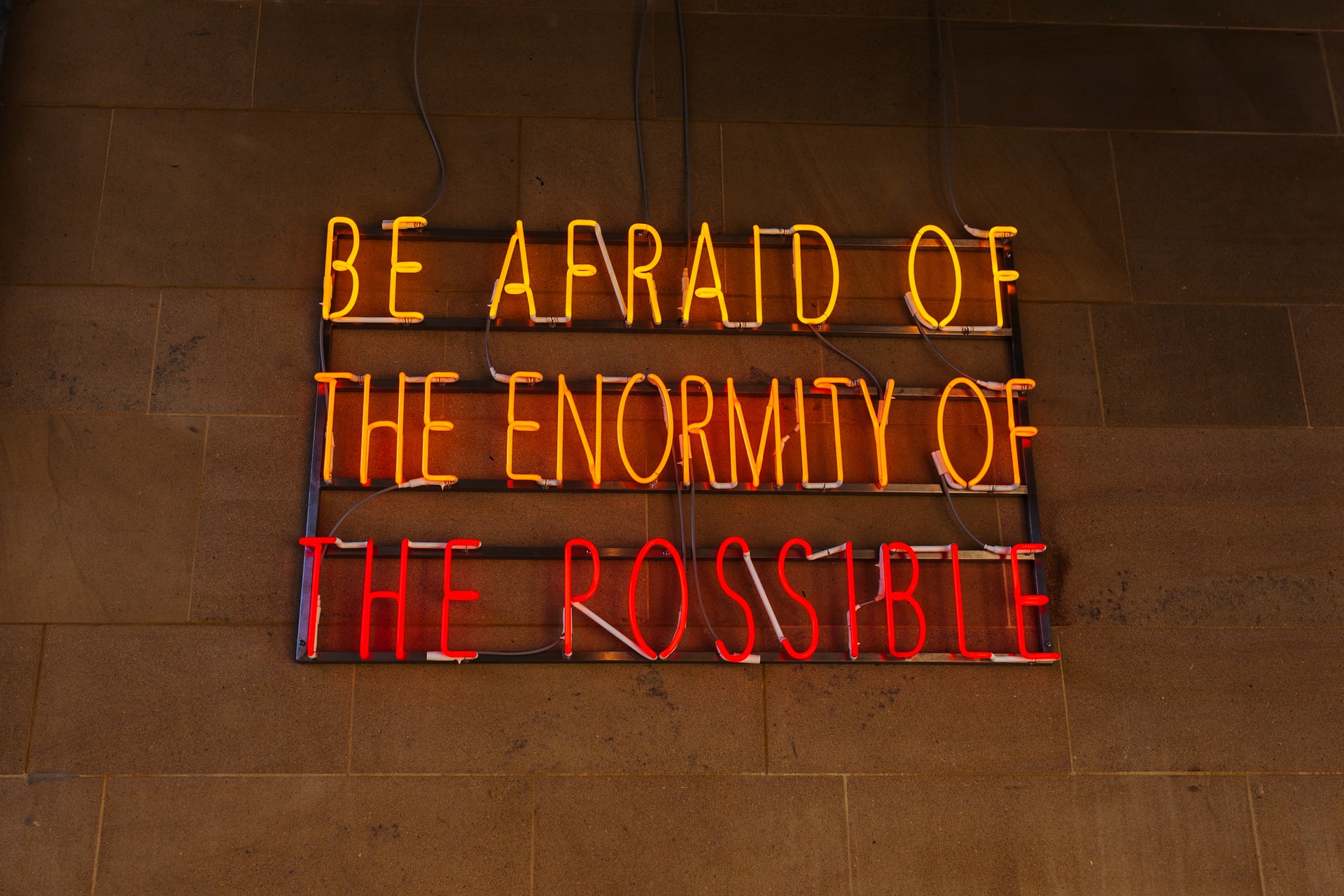A couple weeks ago, some colleagues and I undertook the challenge to describe ourselves in a single word. I chose the word “driven,” a word that has aptly described me for several years.
If I say I’m going to do something, I go all in. If I need support or resources, I exhaust all avenues looking for it.
I don’t always achieve everything I set out to do — not even close — but I’m definitely an action-oriented, nose-to-the-grindstone, give-it-everything-I’ve-got kind of person before I decide to move on.
I wake up every single morning eager to keep building on the day before and planting new seeds for tomorrow. I approach every problem with curiosity and tenacity, even if I’m frustrated. I believe that, for the most part, people are inherently good. (Yes, this has gotten me in trouble before, and, yes, the past couple years have definitely tried my patience in this area.) And, despite the fact the world often feels like it’s burning down around us, I am an optimist.
Quite simply, this is who I am.
A couple weeks ago, an older white gentleman on Twitter mansplained to me why my optimism about tourism was misplaced.
“You are very optimistic. I've worked in the industry for 20+ years. They don't change,” he tweeted at me.
Well, that’s curious. Because, a lot has happened in the past 20+ years in the tourism industry. Heck, a lot has happened in the past year that has definitely moved the tourism needle in a positive direction. The many, many noteworthy achievements include:
- The creation of the Black Travel Alliance and the Future of Tourism Coalition.
- Tourism declared a climate emergency.
- Travel Unity launched a DEI certification program.
- Forward-focused, customer-focused initiatives like Tomorrow’s Air are normalizing responsible tourism while funding environmental clean-up efforts.
- Exodus Travels is actively funding rewilding efforts.
- Organizations like She’s Wanderful and Impact Travel Alliance are tackling difficult but essential topics related to racism and oppression, women’s empowerment, and Indigenous rights at the intersection of travel with an exhaustive suite of written content and free or inexpensive online events.
- Countless travel-related associations have found creative ways to gather online to advance their work while minimizing their environmental footprint.
Certainly there are outer limits of optimism. It doesn’t do anyone any good to believe that everything is peachy. Walking through the world with rose-tinted glasses on all the time is not constructive or genuine. It doesn’t recognize the very real struggles of the communities we work in and the invisible burdens tourism places on them. Holding onto “toxic optimism” (as a colleague calls it) allows the tourism industry to uphold the destructive practices that have caused far more harm than good in the past.
As we find our footing in optimism, I think it’s also important to understand and appreciate the connection between hope and motivation. And, I think this is something that any of my worn-down colleagues (like this gentleman) should consider.
Hope is an emotional coping mechanism born out of a desire for and belief that a better future can be created. When things feel overwhelming and chaotic, hope can break us out of the negative feedback loop.
Motivation offers a reason for our actions. It helps guide us as we seek out and maintain goal-oriented behaviors. For some of us (like me), motivation is innate. For others, motivation is influenced by culture, society, or a lifestyle. Looking within the tourism industry, we can be motivated by what has happened or may happen (in both the positive and negative aspects of our work) to guide our actions.
It’s essential to understand that hope must be coupled with motivation. On a recent Sounds Good podcast episode, host Branden Harvey noted, “I think what’s really valuable about how raw (hope) is is that it requires something of us. It’s not that we get to just stand on the sidelines and wish for a better future. We all get a role in creating that. … There’s a lot of agency to it. There’s a lot of action involved in hope.”
Uncovering problems creates fertile ground for improvement. Hope gives us a reason to focus on the future and tackle challenges. Motivation gives us the will to act. With hope, we can lean on our belief that we can — individually and collectively — make a difference. Without motivation to improve, we remain stagnant.
There are only so many hours in a day and a limited amount of energy I’m willing to give people, so I didn’t engage too much with the Twitter mansplainer. But when this guy called my optimism to the mat, here’s what I wanted to ask him: If he doesn’t have any hope for tourism’s future, then why engage in it? Is he not motivated by the wrongs in the past to do better in the future? Does he not see any hope in what the industry has achieved or how it can evolve? Why continue working in a space that doesn’t hold a spark of potential?
Is there work that needs to be done? Do we still need to address the aviation elephant in the room? Does the cruise industry need a major overhaul? Is greenwashing a legitimate problem? Do we still need to do a better job breaking out of the tourism industry silo and connecting with casual travelers?
Yes, yes, yes, yes, and yes.
And you have a choice: You can look at these as insurmountable, unsolvable problems or an invitation to find creative solutions. They can fuel an internal sense of drive and tenacity or a sense of apathy and fatalism.
This is your chance to move beyond wishful thinking and embrace the motivation to act. Because, as Hillel the Elder so famously noted, “If not now, when? If not you, who?”



